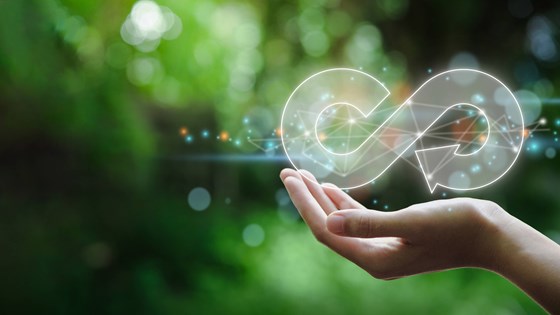
Business Finland, together with Embassy of Finland in Jakarta and The Finnish Innovation Fund Sitra and ASEAN are happy to invite all relevant stakeholders in carbon neutrality and circular economy space to Asean Circular Economy Forum 2023 event held on 8-9 November, 2023 in Jakarta, Indonesia.
The inaugural ASEAN Circular Economy Forum 2023, brings together global and regional circular economy leaders and practicioners to accelerate ASEAN's transition towards a carbon-neutral circular economy. The face-to-face event focuses on collaboration, knowledge-sharing and building partnerships. Anticipating over 200 international attendees, the forum welcomes representatives from policy, business, academia and third sector. Speakers will explore the state of play of circularity in ASEAN, insights from global circular frontrunners, showcases of innovative solutions and the path forward to a carbon-neutral, circular society. Attendees can look forward to a range of seminars, workshops, and ample networking opportunities, among other activities.
This event's primary purpose is to support the ASEAN journey towards a carbon-neutral circular economy.
Agenda
- Day 1 of the event will be a seminar-type setting with curated sessions and exchanges from morning until afternoon at the event venue, including networking opportunities and informal program.
- Day 2 of the event will host three thematic workshop sessions, showcases of low-carbon, circular solutions, as well as stakeholder meetings and networking opportunities.
Participation
This two-day event is free of charge. However, each participant will book and cover their own costs for travel, accommodation, etc.
Background
Countries in ASEAN are committed to decarbonizing their economies and increasingly recognize the need to base their future development on circular economy principles. The region’s average material use is estimated to have reached over 10.8 tons per person per year, which is close to the global average. Meanwhile, the region’s resource use is highly linear and wasteful; only around 2.5% of the waste generated is recycled and used for new products. The massive demand and wasteful use of natural resources are causing widespread degradation of the region’s ecosystems, contributing to climate change, and fueling social tensions. Transitioning to more circular practices can help address these issues while also creating economic opportunities and green jobs. In addition, circular solutions can often have climate co-benefits, helping ASEAN Member States (AMS) achieve their decarbonization objectives.
While the circular economy is commonly misunderstood as increased recycling, transitioning to a circular economy requires a holistic approach addressing supply and demand to transform business models, product designs, and consumer preferences. This requires major investments and public policy support. However, the transition provides great business opportunities for circular and carbon-neutral solutions, innovation and new partnerships in the region. Furthermore, with circularity and carbon neutrality becoming increasingly prevalent within the EU (evidenced by initiatives like circular product policy and carbon tax), this transition has the potential to bolster ASEAN's competitiveness within the EU market.
Collaboration is paramount to effectively address the challenges of the transition and capitalize on the opportunities. Several AMS have adopted national circular economy strategies and are in the process of turning these plans into action. This provides opportunities for exchanging experiences and joint learning. At the regional level, ASEAN has taken significant steps to foster collaboration on a circular economy transition. This includes the Framework for Circular Economy for the ASEAN Economic Community, complemented by an Implementation Plan and a Work Programme, and the ASEAN Sustainable Consumption and Production Framework, with strong circular economy elements. In addition, ASEAN has established a Circular Economy Stakeholder Platform (ACESP), hosted by the ASEAN Centre for Sustainable Development Studies and Dialogue (ACSDSD). All these initiatives are fairly recent and there is a need to discuss how to accelerate their implementation and create synergies among them.
At the global level, the transition to a carbon neutral circular economy has already started. The World Circular Economy Forum (WCEF) is a global collaboration platform and the world’s leading event dedicated to advancing circularity, driven by the vision of creating a new economy, businesses, and jobs through circular solutions that address the planetary crises.
The ASEAN Circular Economy Forum 2023 is an official WCEF side event.
This event is co-organized by Team Finland networks, the ASEAN secretariat, The Finnish Innovation Fund Sitra & WCEF, and Indonesia as the host country, in close cooperation with the EU-funded Enhanced Regional EU-ASEAN Dialogue Instrument (E-READI), the ASEAN Circular Economy Stakeholder Platform (ACESP) and the EU.
